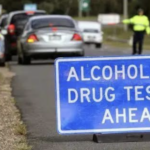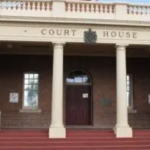Boots, Bonnets and Trailers: Traffic Offences for Improperly Travelling In or On a Motor Vehicle

Whilst everyone enjoys a bit of fun, having your mate surf on the roof of your car is a stunt likely to come with a costly fine!
The following outlines the NSW road rules regarding passengers safety in moving vehicle, the penalties that apply and whether defences are available.
General rule: Bums on seats!
As you would expect, the Road Rules 2014 (NSW), as well equivalent legislation in other states and territories, are interested in the safety of all road users, including passengers.
The overriding rule when it comes to passengers is they must be seated entirely within the vehicle, with seatbelts fastened.
Regulation 268(1) of the Road Rules makes it an offence for a person to travel in or on a part of a motor vehicle that is not a part designed primarily for the carriage of passengers or goods (including the bonnet!).
And Regulation 268(2) makes clear that a person must not be in part of a vehicle designed for the carriage of goods unless:
- the part is enclosed, and
- he or she occupies a seating position that is suitable for the size and weight of the person and that is fitted with a seatbelt
A penalty notice for either offence comes with a fine of $349 at the time of writing,.
A maximum fine of $2,200 fine can be imposed if a person elects (chooses) to take the matter to court.
When it comes to drivers, Regulations 268(4A) and 268(4B) provide that a person who operate a motor vehicle whereby a passenger is not appropriately seated faces a penalty notice in the sum of $349 and the loss of 3 demerit points., or a fine of up to $2,200 if the driver elects to take the matter to court (plus the 3 demerit points, unless the case is dismissed, or the person obtains a non conviction order such as a section 10 dismissal).
The rule does not, however, apply to a person who is:
- in or on a police or emergency vehicle; or
- engaged in the door-to-door delivery or collection of goods, or in the collection of waste or garbage, in or on a motor vehicle that is not travelling over 25 kilometres per hour; or
- in no reasonable danger of falling or being thrown from the vehicle or being injured; or
- otherwise authorised by law to travel in this manner.
Transport for NSW may also, in limited circumstances, allow a person (in writing) to breach the above rule for the purposes of allowing sporting or similar events to be filmed or facilitating any other special event.
Passengers must keep their arms and legs inside the vehicle at all times
Under Regulation 268(3), a person must not travel in or on a motor vehicle with any part of the person’s body outside a window or door of the vehicle, unless the person is the driver of the vehicle and is giving a hand signal:
- for changing direction to the right; or
- for stopping or slowing.
This offence comes with a penalty notice of $349 for any passenger.
Under Regulation 268(4), the driver of a vehicle in which the rule is breaches faces a penalty notice of $349 plus 3 demerit points, or a maximum fine of $2,200 if he or she elects to take the matter to court.
Passengers must not travel in the boot of a vehicle
Under Regulation 268-2(1), a person must not travel in or on the boot of a motor vehicle.
A penalty notice for this offence comes with a fine of $349 at the time of writing, and a maximum fine of $2,200 fine can be imposed if a person elects (chooses) to take the matter to court.
Under Regulation 268-2(2), the driver of a vehicle in which the rule is broken faces a penalty notice of $349 plus 3 demerit points, or a maximum fine of $2,200 if a court election is made.
Passengers must not travel in or on trailers attached to vehicles
Under Regulation 268-3, a person must not travel in or on any part of a trailer that is a part designed primarily for the carriage of goods if the part is not enclosed.
This offence comes with a penalty notice of $349 for passenger, or up to $2,200 if the case is taken to court. “Enclosed” in relation to a part of a trailer, means enclosed by:
- the structure of the trailer, or
- a canopy, cage or other device fitted to the trailer that is of a kind approved for the purposes of this rule by Transport for NSW.
This rule does not apply to a person who is:
- in or on a police or emergency vehicle; or
- engaged in the door-to-door delivery or collection of goods, or in the collection of waste or garbage, in or on a motor vehicle that is not travelling over 25 kilometres per hour; or
- in no reasonable danger of falling or being thrown from the vehicle or being injured; or
- otherwise authorised by law to travel in this manner.
The offence of negligent driving
And if the above offences aren’t enough, drivers should be aware that failing adhere to the standards of a reasonably prudent driver by having a passenger breach one or more of the above rules can potentially amount to the offence of negligent driving.
Negligent driving is considered to be a major traffic offence and the penalties depend on whether or not a person was seriously injured, or worse.
The following table lists the penalties for negligent driving offences:
| Relevant section | If you have been charged with… | The maximum penalty is… |
| S 117(1)(a) Road Transport Act 2013 | Negligent driving occasioning death | First offence: A fine of $3,300 and/or 18 months imprisonment. The ‘automatic’ period of disqualification is 3 years, but the court can reduce this to a minimum disqualification period of 12 months. The maximum disqualification is unlimited.
Second/subsequent offence: A fine of $5,500 and/or 2 years imprisonment. The ‘automatic’ period of disqualification is 5 years, but the court can reduce this to a minimum disqualification period of 2 years. The maximum disqualification is unlimited. |
| S 117(1)(b) Road Transport Act 2013 | Negligent driving occasioning grievous bodily harm | First offence: A fine of $2,200 and/or 9 months imprisonment. The ‘automatic’ period of disqualification is 3 years, but the court can reduce this to a minimum disqualification period of 12 months. However, the maximum disqualification is unlimited.
Second/subsequent offence: A fine of $3,300 and/or 12 months imprisonment. The ‘automatic’ period of disqualification is 5 years, but the court can reduce this to a minimum disqualification period of 2 years. The maximum disqualification is unlimited. |
| S 117(1)(c) Road Transport Act 2013 | Negligent driving NOT causing death or grievous bodily harm | A fine of $1,100. The court may also choose to disqualify you from driving for 12 months. |
Challenging the allegations
It is important to be aware that the onus rests on the prosecution to prove any of the above offences beyond a reasonable doubt.
That being so, those who believe that were on the right side of the law when it comes to a traffic ticket can apply for a review or, if this is refused, elect (choose) to take the matter to court and put the prosecution to proof; in other words, make them prove the allegations.
Additional arguments put forth in court when defending such allegations include:
- The offence did not occur as alleged, or at all,
- Someone else committed the offence (misidentification)
- The signage regarding U-turns was confusing, illegible or difficult to see.
- The penalty notice is invalid, due to an error in or insufficiency of material particulars, and/or
- An emergency justified the violation or the conduct occurred as a result of being threatened with imminent serious harm.
It is important to carefully consider whether to elect to take a penalty notice to court, as it can result in a harsher penalty than that which comes with the penalty notice.
That said, a court also has discretion to deal with the matter by way of a non-conviction order such as a section 10 dismissal in the event you wish to plead guilty or are found guilty and seek leniency.
Getting a non-conviction order means there is no fine or demerit points.
Going to court over a traffic offence?
If you are you going to court to contest a traffic offence, call Sydney Criminal Lawyers anytime on 9261 8881 to arrange a free first conference during which one of our experienced defence lawyers will assess the case, advise you of your options and the best way forward, and fight for the optimal outcome.






